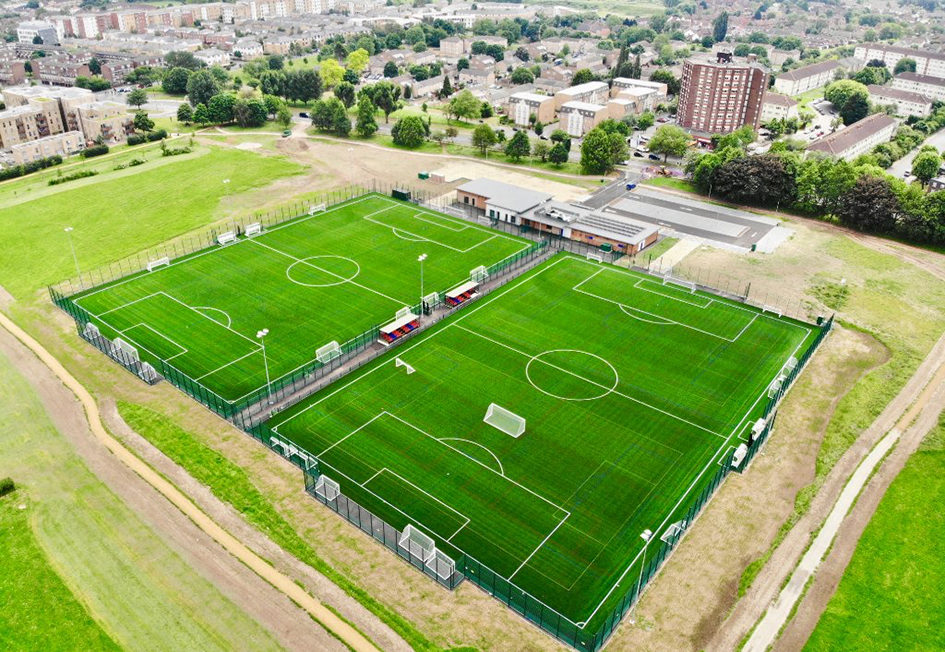This year saw the completion of the first Parklife-funded scheme in London and the second in the UK, bringing top class footballing facilities to the local community.
The £4.8m sports development at Rectory Park in Northolt was delivered by a partnership between Middlesex Football Association, Ealing Council, the Football Association, The Department for Digital, Culture, Media & Sport (DCMS), the Premier League, the Football Foundation and the London Marathon Charitable Trust.
At the heart of this partnership was LK2, a unique company of consultants specialising in architecture and sports and leisure project development, which saw the project through from proposal stage to completion. Directors Andrew Kitchen and Gary Johnson discuss how asset transfer aligned with the new Parklife initiative to create a community hub that’s the first of its kind.
An asset transfer occurs when the management or ownership of a facility is transferred, usually from public bodies – such as local authorities – to community and voluntary organisations or social and community enterprises.
The Rectory Park project is an example of how architects, project development teams and National Governing Bodies (NGBs) can come together in best practice for these kinds of asset transfer projects.
Now completed, the 16,800 sq ft scheme provides two full size third generation football turf pitches (3G FTP), six changing rooms and 160 sqm. of community and social space. The park also accommodates grass football pitches, two cricket squares, a model fly zone with landing strip and a trim trail, all of which will benefit the local community.
LK2 was first brought in on the project when the vacant park land went out to an open tender. Middlesex FA saw the potential of the site to deliver a Football Development Centre in line with the proposal for a new headquarters for the organisation. The sports business consultancy team at LK2 carried out an initial feasibility study, looking at viability of a range of options, including community needs assessment and a detailed financial review.
The proposed plans also aligned with the ambitious Parklife initiative – a national funding scheme that aims to help local communities access high quality grassroots football facilities. This joint approach provided a financially sustainable business model for all parties concerned. Additional funding was also put forward by Ealing Council, Middlesex FA and the London Marathon Trust, bringing the total funding raised to over £3m.
The development of a financially sustainable business model also highlighted the significant need in the local area for the delivery of football and community activities. A number of very detailed grant aid applications were ultimately successful based on the development of the detailed business plan developed from the initial feasibility study.
Having been a central part of the partnership working on the project, LK2 was able to navigate the relationships between all parties involved, including feasibility study, business planning, asset transfer and full architectural services throughout, enabling the project to be delivered to a high-standard for all.
LK2 is also unique in terms of the long-standing relationships it has with NGBs of sport and enabled the delivery of the FA Parklife initiative through its understanding of the needs of Middlesex FA, The FA and other key partners.
The LK2 sports business advisors and architectural team were able to provide an efficient and effective design based on the needs of various partners, understanding of the FA Parklife requirements and details regarding the implementation of such facilities in a London park.
This project is only the very tip of the iceberg, as the Parklife scheme is being rolled out across the country, providing accessible facilities that will improve sport participation rates and support the interests of local communities.









